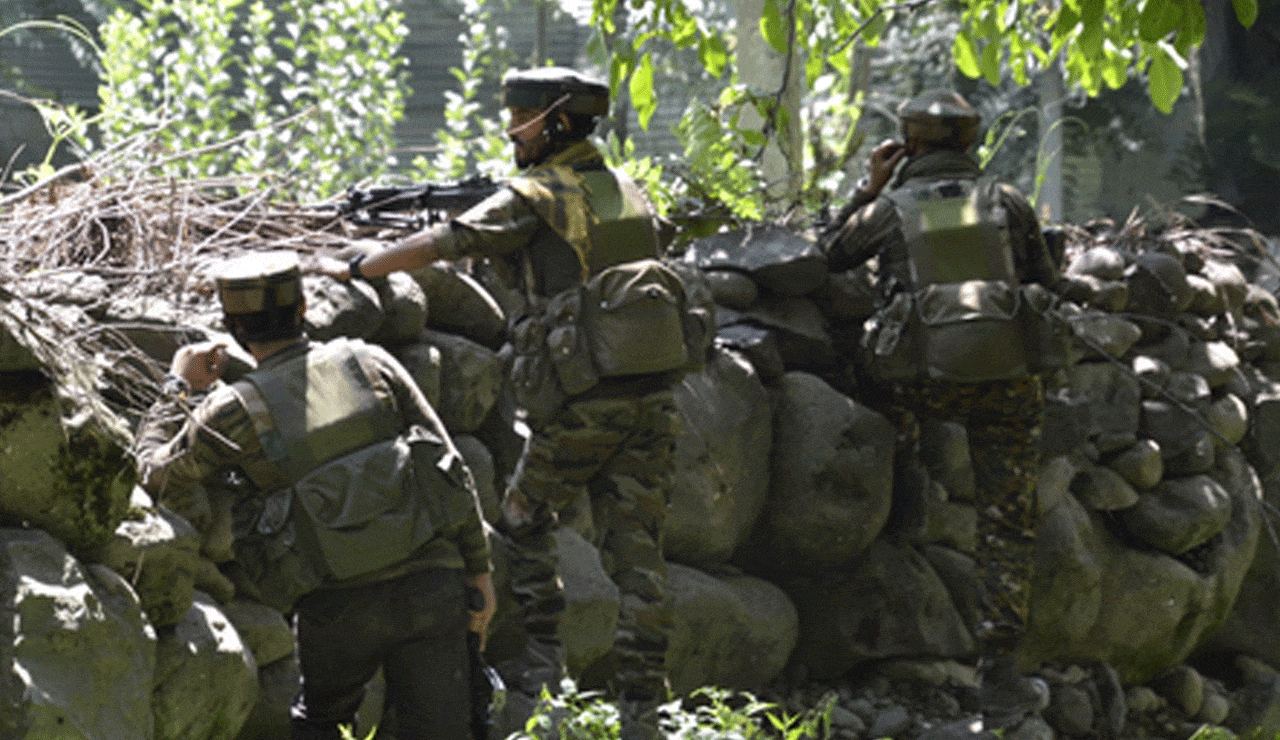Terror Attack in Pahalgam: A Call for a New Strategic Response
The deadly terror attack in Pahalgam on April 22, which claimed the lives of 26 Hindu tourists and left many others injured, has once again brought the issue of cross-border terrorism to the forefront.

New Delhi: The deadly terror attack in Pahalgam on April 22, which claimed the lives of 26 Hindu tourists and left many others injured, has once again brought the issue of cross-border terrorism to the forefront. A group of four terrorists, including three from Pakistan and one local, ambushed the tourists wearing army fatigues and carrying automatic rifles.
Table of Contents
The attack, carried out by The Resistance Front (TRF), a terrorist group linked to Lashkar-e-Taiba (LeT), calls for a reevaluation of India’s counter-terror strategy and a comprehensive, multi-pronged response to create a lasting deterrent against Pakistan’s involvement in such attacks.
The Growing Threat of Terrorism in Kashmir
The attack in Pahalgam is a grim reminder of the ongoing threat posed by Pakistan-based terror groups in Jammu and Kashmir. The region, which has long been a site of conflict, continues to experience violence, with the terrorists identifying their Hindu targets by name before executing them in cold blood. This attack echoes the tragic events of 1990, when Pakistan-backed militants forced the exodus of Kashmiri Pandits, aiming to strengthen Pakistan’s claim over the region.
Pakistan’s ongoing support for terrorism, particularly through its intelligence agency, the ISI, is evident in its continued use of proxies like TRF to destabilize the region. The head of the group responsible for the Pahalgam killings is reportedly a former Pakistani soldier, highlighting the direct involvement of Pakistan in orchestrating these attacks.
A Strategic Review of Counter-Terrorism Policies
The attack at Pahalgam underscores the need for a strategic overhaul in India’s counter-terrorism approach. While the Indian military has made significant progress in countering terrorism, a more comprehensive, multi-dimensional strategy is needed to tackle the growing threat. A new approach must address not only the immediate security concerns but also the long-term geopolitical implications of Pakistan’s continued support for terrorism.
India’s response must also involve strengthening intelligence-sharing mechanisms, enhancing surveillance capabilities, and implementing more effective countermeasures against sleeper cells operating within the country. The recent intelligence warning regarding suspicious activities in Pahalgam, which was not acted upon adequately, highlights the critical need for better coordination between intelligence agencies and security forces.
Pakistan’s Strategic Alignments and the Global Context
Pakistan’s role in supporting terrorism is further complicated by its strategic alignment with China. The growing cooperation between Pakistan and China, especially in defense and economic sectors, presents new challenges for India. The visit of Pakistan’s army chief to Beijing in 2023 to strengthen defense ties signals a deeper geopolitical entanglement that could further escalate tensions in the region.
Also Read: Old Politics is Dead: Rahul Gandhi Pushes for New Leadership in India and Beyond
Furthermore, the shifting dynamics in the Middle East, with Islamic radical forces aligning against Western powers, have further complicated Pakistan’s position on the global stage. Despite these challenges, India has maintained a balanced approach, strengthening ties with key players like Saudi Arabia, Israel, and Iran, while consistently condemning terrorism in all forms at international forums.
The Need for Stronger Domestic Security Measures
On the domestic front, India must take decisive action against political elements that subvert national unity and promote divisiveness. The situation in Kashmir requires a more stringent security apparatus to dismantle the sleeper cells of terrorist organizations and curb the influence of pro-Pakistan elements. Strengthening local intelligence units (LIUs) and enhancing the capabilities of intelligence agencies to act on available information is crucial in preventing such attacks in the future.
The Pahalgam killings are a stark reminder that intelligence alone is not enough; swift and effective action is essential to prevent further loss of lives. India must also strengthen its domestic security framework, ensuring that all intelligence warnings are acted upon promptly to safeguard its citizens.
A Unified Approach to Counterterrorism
The Pahalgam attack emphasizes the urgent need for a unified and robust approach to counter-terrorism in India. By strengthening intelligence, enhancing security measures, and holding Pakistan accountable for its role in supporting terrorism, India can hope to create a long-term deterrent to such attacks. A strategic review of counter-terror policies, both at the national and international levels, is essential to counter the growing threat posed by cross-border terrorism and ensure the safety of its citizens.
